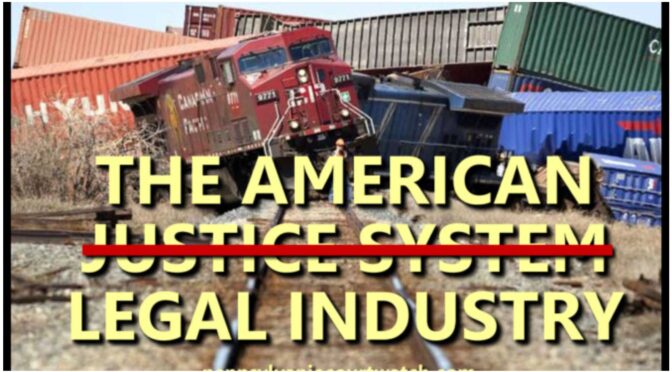
"The once honorable profession of law now fully functions as a bottom-line business, driven by greed and the pursuit of power and wealth, even shaping the laws of the United States outside the elected Congress and state legislatures.”
-- Justice John F. Molloy
When I began practicing law in 1946, justice was much simpler. I joined a small Tucson practice at a salary of $250 a month, excellent compensation for a beginning lawyer. There was no paralegal staff or expensive artwork on the walls. In those days, the judicial system was straightforward and efficient. Decisions were handed down by judges who applied the law as outlined by the Constitution and state legislatures. Cases went to trial in a month or two, not years. In the courtroom, the focus was on uncovering and determining truth and fact.
I charged clients by what I was able to accomplish for them. The clock did not start ticking the minute they walked through the door.
Looking back
The legal profession has evolved dramatically during my 87 years. I am a second-generation lawyer from an Irish immigrant family that settled in Yuma. My father, who passed the Bar with a fifth-grade education, ended up arguing a case before the U.S. Supreme Court during his career.
The law changed dramatically during my years in the profession. For example, when I accepted my first appointment as a Pima County judge in 1957, I saw that lawyers expected me to act more as a referee than a judge. The county court I presided over resembled a gladiator arena, with dueling lawyers jockeying for points and one-upping each other with calculated and ingenuous briefs
That was just the beginning. By the time I ended my 50-year career as a trial attorney, judge and president of southern Arizona's largest law firm, I no longer had confidence in the legal fraternity I had participated in and, yes, profited from.
I was the ultimate insider, but as I looked back, I felt I had to write a book about serious issues in the legal profession and the implications for clients and society as a whole. The Fraternity: Lawyers and Judges in Collusion was 10 years in the making and has become my call to action for legal reform.
Disturbing evolution
Our Constitution intended that only elected lawmakers be permitted to create law. Yet judges create their own law in the judicial system based on their own opinions and rulings. It's called case law, and it is churned out daily through the rulings of judges. When a judge hands down a ruling and that ruling survives appeal with the next tier of judges, it then becomes case law, or legal precedent. This now happens so consistently that we've become more subject to the case rulings of judges rather than to laws made by the lawmaking bodies outlined in our Constitution.
This case-law system is a constitutional nightmare because it continuously modifies constitutional intent. For lawyers, however, it creates endless business opportunities. That's because case law is technically complicated and requires a lawyer's expertise to guide and move you through the system. The judicial system may begin with enacted laws, but the variations that result from a judge's application of case law all too often change the ultimate meaning.
Lawyer domination
When a lawyer puts on a robe and takes the bench, he or she is called a judge. But in reality, when judges look down from the bench they are lawyers looking upon fellow members of their fraternity. In any other area of the free-enterprise system, this would be seen as a conflict of interest.
When a lawyer takes an oath as a judge, it merely enhances the ruling class of lawyers and judges. First of all, in Maricopa and Pima counties, judges are not elected but nominated by committees of lawyers, along with concerned citizens. How can they be expected not to be beholden to those who elevated them to the bench?
When they leave the bench, many return to large and successful law firms that leverage their names and relationships.
 It was not planned, but it has become another tactic to try to insert communism into the United States by opportunists. If you think this artificially created "emergency" is anything else, you are delusional. Tens of thousands die each year from influenza, and this "pandemic" is nothing more than the natural selection that occurs every year. Dr. Fauci of the NIAID knows this, but is dependent on federal grants, so this is a windfall for him.
It was not planned, but it has become another tactic to try to insert communism into the United States by opportunists. If you think this artificially created "emergency" is anything else, you are delusional. Tens of thousands die each year from influenza, and this "pandemic" is nothing more than the natural selection that occurs every year. Dr. Fauci of the NIAID knows this, but is dependent on federal grants, so this is a windfall for him.


